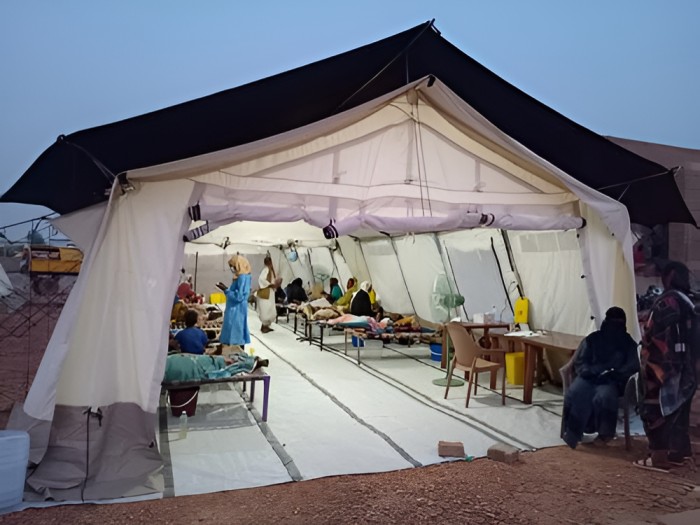Sudan’s cholera toll rises to 172 deaths amid 2,000 cases treated by MSF

Doctors Without Borders, known as Médecins Sans Frontières (MSF), has expressed grave concerns over Sudan's inadequate medical infrastructure to manage the escalating crisis.
Approximately 172 lives have been lost and more than 2,500 individuals infected following a cholera outbreak that erupted in Sudan last week.
The majority of cases were concentrated in Khartoum and Omdurman, with additional reports emerging from various parts of the country.
Doctors Without Borders, known as Médecins Sans Frontières (MSF), has expressed grave concerns over Sudan's inadequate medical infrastructure to manage the escalating crisis.
Joyce Bakker, the MSF Sudan coordinator, revealed that the NGO has treated nearly 2,000 suspected cholera cases in the past week alone, highlighting the urgent need for international intervention.
"We don't know the true scale of the outbreak, and our teams can only see a fraction of the full picture," emphasized Bakker, underscoring the severity of the situation.
Earlier in March, MSF reported a separate cholera outbreak in Sudan's White Nile State, where 92 fatalities were recorded among 2,700 cases since late February.
The outbreak in Khartoum has been linked by Sudan's Health Minister to the resettlement of residents previously displaced by ongoing conflicts between the Sudanese Army and the Rapid Support Forces.
This influx has strained the city's already limited water supply, exacerbating conditions conducive to cholera transmission.
Cholera, an acute diarrheal infection caused by Vibrio cholerae bacteria, poses significant health risks according to the World Health Organization (WHO).
The disease can lead to severe dehydration and death within hours if untreated, with symptoms appearing between 12 hours to 5 days after infection.
WHO stresses the critical role of safe water, sanitation, and hygiene in preventing cholera and similar waterborne diseases.
Effective measures include enhanced surveillance, improved community engagement, access to quality treatment, and the implementation of oral cholera vaccine campaigns.
